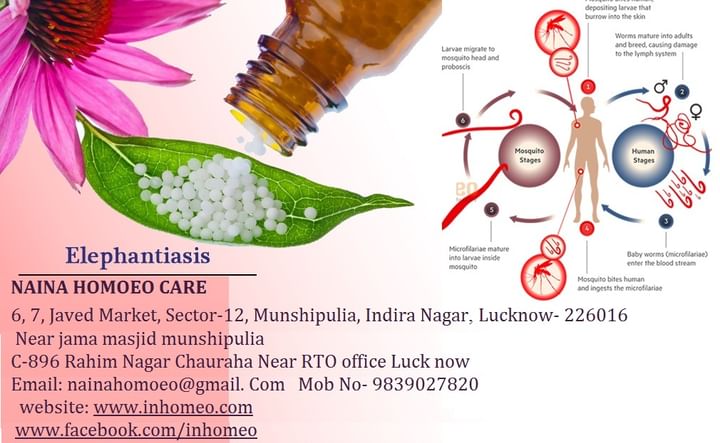Signs And Symptoms Of Elephantiasis
Elephantiasis is a disease in which the patient's leg may swell up like that of an elephant. Elephantiasis is produced due to the disease Filariasis that is caused by parasites, which spread through mosquito bites to humans. This disease can have impact on personal life, psychological state, physical disability and economical state of the patients. Actually, Lymphatic Filariasis is called Elephantiasis, as it produces above stated symptoms.
Elephantiasis may affect the lymphatic system of the body, especially the legs, hands, genitals in males as well as in females; producing swelling of the affected parts. This disease affects millions of patients in Africa and other topical countries such as India, Bangladesh, Sri Lanka, etc.
Signs and symptoms of Elephantiasis:
Elephantiasis is caused by filarial parasites and it happens over a long period of time due to recurrence of infection.
The signs and symptoms are as under:
• Initial symptoms may be episodes of fever with chills (like malaria) with body ache. Such episodes may keep recurring to lead to long term changes.
• Once the parasites enter the lymphatic system of the body, more symptoms appear due to their effect on lymph glands.
• Inflammation of lymphatic glands or lymph nodes which may appear swelling and painful. Such inflamed lymph nodes could be found in arms, pelvis (groins), neck, behind the knees, etc.
• Chronic lymphatic affection due to Filariasis over the period of time can lead to swelling of legs, scrotum (in males), vulva (females), or arms. Elephantiasis can look ugly and disfiguring due to large swollen body parts, including large scrotum. It is often associated with thickening of skin in the affected parts.
Treatment for Elephantiasis
The treatment of Elephantiasis is essentially targeted at treating the active infection of Filaria.
Even if Filariasis infection is controlled, the lymphatic swelling which have already occurred may not reverse. So the lymphatic swelling would not reduce significantly even after successful treatment of Filarial infection. Conventional medicines, which suggest the use of some antibiotics, would be indicated in active infection. Surgical treatment may be required in the resistant cases with large swelling and thickening.
Homeopathic treatment for Elephantiasis and Filariasis:
Homeopathic treatment helps only reduce the frequency of Filariasis infection to certain extent. Once Elephantiasis takes place, that is, in the cases with large swelling of limps, legs, hands, genitals, etc. homeopathic medicines do not or cannot cure the swollen body parts.



+1.svg)
